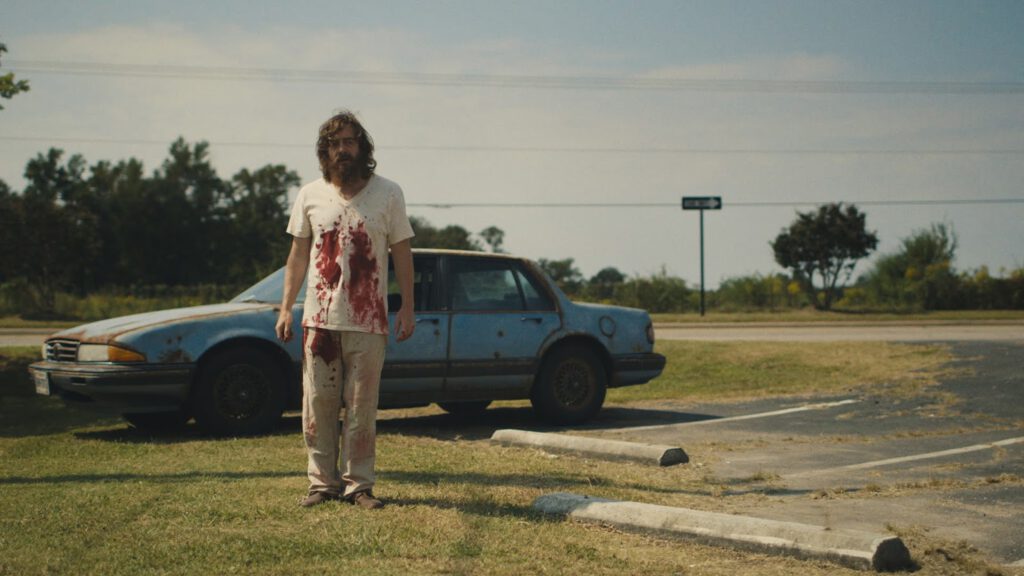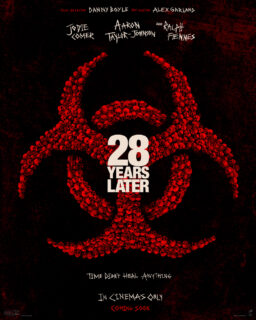I saw three films Saturday about characters with limited knowledge of who they are, and what they’re capable of. Two are revenge dramas, the other a quirky comedy.
The latter, “Frank,” is the weakest of the bunch, so I’ll complain about it first. It starts off as an absurd comedy about Jon (Domhnall Gleeson), a wannabe musician who puts the rest of his life on hold to play in an indie rock band. At first his bandmates are stick figures defined by their wacky artistic temperaments. Frank (Michael Fassbender) is the group’s mercurial, mask-wearing lead singer. Clara (Maggie Gyllenhall) is a testy theremin player who at one point threatens to stab Jon with her Swiss army knife. Don (Scott McNairy), the group’s depressed manager, used to have sex with mannequins.
As “Frank” goes on, we learn that we’re not supposed to be completely sympathetic with Jon. He’s eager-to-please but not really talented. Every time he tries to write a song, he splutters and unceremoniously stops. So while we’re supposed to believe in Jon, he’s almost never more compelling than his dire yet goofy circumstances. Frank puts his band through their paces, but life with him is cuckoo-strange; by his standards, everything is normal, be it impromptu martial arts training or a fiery viking burial at sea. By which I mean there isn’t supposed to be a consistent standard of normalcy in “Frank.”
But the problem with “Frank” isn’t that it’s all-over-the-place; the film eventually snaps into focus, and becomes a melancholic drama about how people are never just the front/personas that they present to the world. Unfortunately, though, by that point so much of the film is defined by toxically twee humor that it’s impossible to know the film’s characters beyond a point. So while “Frank” ultimately begs the viewers to appreciate, if not completely understand, its subjects’ complexity, the film’s characters are just never that complex.
“Cold In July” stars Michael C. Hall as a man who kills a burglar in his house, then gets entangled with the dead thief’s father, played by Sam Shepard. I won’t write about the movie in detail here because I plan on interviewing author Joe Lansdale about the film’s source novel, amongst other things.
But I will say that I was impressed with “Blue Ruin,” a mostly engrossing though ultimately predictable thriller. It arrived at Sundance with considerable festival buzz behind it, and for the most part, the hype is warranted. The film is an immediately involving revenger’s tragedy about one man’s compulsive need to hurt the people who hurt him first. Dwight (Macon Blair) is a man possessed after he learns that the man who murdered his parents is getting early parole. Thankfully, while writer/director Jeremy Saulnier (“Murder Party”) does lose his grip by film’s end, he’s never as out of control as Dwight.
Saulnier rarely uses declamatory dialogue, as when Dwight’s sister laments “I’d forgive you if you were crazy. But you’re weak”—the kind of dialogue that explains too much. By film’s end, Saulnier’s grip on Dwight is so relaxed that the film’s inevitable conclusion is as underwhelming as it is predictably anticlimactic. “Blue Ruin” is at its best when it’s a virtually silent film about how a man’s need to resolve past trauma is necessarily messy. Saulnier puts a lot of trust in Blair’s body language, and the actor does not disappoint. Saulnier lets the hero’s material actions define him, perfectly illustrating the gap between the character’s deeds and their consequences.












